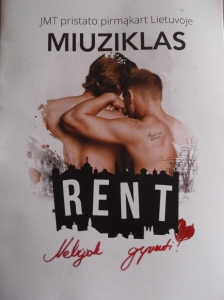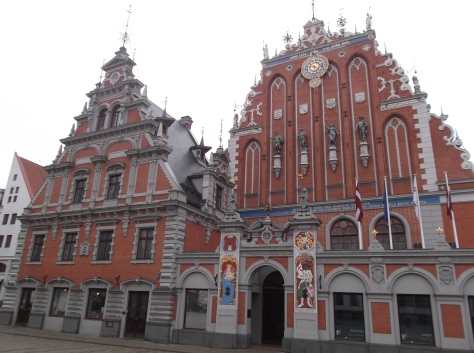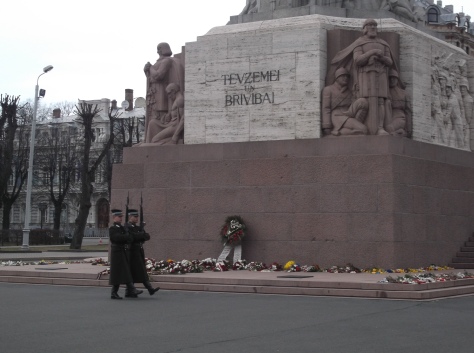One of the perks of being a university professor in Europe is the convenience and opportunity to travel throughout the continent for conferences. Lithuania is fairly central and the airport affords connections to all major hubs, so it is a pretty sweet deal, especially since several discount airlines also run through Vilnius.
This fall I traveled to Gdansk, Poland for the 2nd International Interdisciplinary Conference, “Dreams, Phantasms and Memories.” I know, the title sounds amazing and full of potential, and for the most part, the organizers did a good job–there were some hiccups, one of which was that the hotel receptionist somehow thought the conference had been moved and/or canceled and so several of us participants milled around for a few hours trying to figure out what to do, but on the whole, the panels were interesting, the scholars articulate, the reception dinner tasty, and the location interesting. I’d never been to Gdansk, though I have been to other parts of Poland, and on the whole, love the country. However, one was less a hiccup and more like a massive diaphragmatic seizure,
So, to the massive diaphragmatic seizure. The conference was set up to explore various aspects of dreams as they appear in art, literature, film, archaeology, neurology, psychology, and any number of other disciplines. I presented a paper on a British novel called The Raw Shark Texts (awesome realist fantasy, highly recommended!) and was on a panel with another literary scholar, and a film critic. Some of the other panels were on dreams in the use of therapy, brain function while dreaming, and dreams and memory conflation in Holocaust survivors’ narratives. All was well and good. Until the final presenter in the final panel. What was billed in the program as a presentation on Neil Gaiman’s The Sandman graphic novels–and I was sooo looking forward to that one!–turned into a presentation on how to avoid being possessed by demons through dreams. Seriously. The presenter first told us about the metaphysical research center in India where she and her colleagues did their ‘spiritual research,’ which unlike other research cannot be replicated because it requires special enlightened capabilities that only her guru possessed. She then enumerated the various ways that demons enter dreams to possess people. The room was was silent as she spoke, but as I looked around, while simultaneously avoiding her eye-contact, I could see smirks, eye-rolls, could hear guffaws and even some ill-concealed straight-out laughter. The moment the Q&A started it was a shark-circling, blood-in-the-water frenzy. They ripped her apart.
On one hand, I sympathized with her as she was in earnest about her topic and sincerely believed everything she said. And while I do not share her religious beliefs, as this was clearly what she was presenting, neither did I appreciate the mocking of them by the audience. On the other hand, the conference organizers should never have accepted her abstract. What she presented was not research.
On that note, the conference ended. Surely the drama was over and my conference experience would end happily. It did, but not without another seizure. I had nearly three hours to get to the airport after check out, so I moseyed around the city for a bit after breakfast the next morning, then got to the train station and, since there no one at the window, decided I’d buy my ticket from the agent on the train. Then I tried to figure out which train was the right one and get to that platform.
‘Tried.’
Once the train took off, I queued in line to the agent. Since my Polish is not great, I showed her the paper with the airport stop name. She looked at it a moment, then sold me a ticket.
I went back to my seat and watched the Polish countryside roll on by. After the first two or three stops, I watched the electronic ticker list the upcoming stops, counting to see how many more I had. It pass through once. Then again. Then again. The name of my stop did not come up. I looked at my ticket and it did not have the name of my stop either. I wondered if the name on my ticket was a transfer since I had shown the agent the clearly written name of the airport stop in Polish! on my paper. My stop came up. I exited. Into the middle of a cow field.
The agent sold me a ticket to a cow field!
For a moment I thought, I’ll take a taxi, since surely it can’t be that far to the airport. I looked around for a taxi sign and found one. In the middle of the cow field. There was no taxi. There was no road. There was also no ticket agent here, but only a machine, so I bought another ticket to take me back the way I had come, with a stop at the major station I had noted a few stops back, and saw from the route map in the train that it transferred to the actual train I needed to get to the airport.
I did it. It worked out. That’s me on my new train (I hoped) to the airport.
But seriously. Seriously. The agent knew where I wanted to go. She could have told me I had to get off the train at the transfer station. She could have told me I was on the wrong train. But, no. She sold me a ticket to a cow field.
I get that foreigners often irritate nationals, and that a train agent might get tired of dealing with hapless travelers who don’t speak the language. But she just sent me on my merry way without concern that I might have to get to the airport in a hurry (fortunately I had plenty of time and my ordeal only ate about an hour of my three hour surplus). But still.
I will say, though, that she was the only Pole I encountered who treated me poorly. Everyone else went out of their way to make me feel welcome and to help me along my way. I still love Poland. But I don’t want to see any more cow fields.
























































